Since the dawn of online search in the early 1990s, keywords have been a critical component. In the earliest search engines, users would type in a single keyword, hit enter, and receive a list of results that included the searched-for word. Today, search engines operate in much the same way, but as they have evolved to handle more complex search terms, so too has the concept of keyword optimization. In online marketing for insurance agents, it is imperative that search engine optimization (SEO) professionals adopt the latest and best practices for optimizing search visibility.
Evolving Search Algorithms Necessitate Evolving Practices
Search engine giants like Google dominate the online landscape, offering search results for millions of user queries each day. Google leads the pack in terms of implementing new functionality and features to the search experience with the goal of providing better and more accurate results to users. Search engine algorithms have evolved dramatically over the past decade, and are now able to handle complex keywords and key phrases by gaining an understanding into user intent through the use of advanced technologies like machine learning and artificial intelligence (AI).
Today, SEO professionals target specific keywords and key phrases for each page of a given website. This remains the core of the practice, giving search engines the information they need to correctly index site content and to deliver relevant results to search users. In the past, practices like “keyword stuffing”, or using multiple instances of the same keyword over and over in a page, were sufficient to produce high rankings in results pages. Those same practices today may result in low rankings or even penalties imposed by the search engines. While keywords are still important, how they are used is far more beneficial than how often they appear in web content.
Keyword Research: The Foundation of Optimization Best Practices
Most people understand that keywords are crucial to the function of search engines. Identifying the right keywords and key phrases to use in web content, however, can be a daunting process. The concept of keyword research is the foundation of any good SEO campaign. SEO professionals have many tools at their disposal to identify common keywords and those most likely to drive traffic. These tools include studying data sets like:
- Search volume
- Search traffic by page
- Competitor traffic
- Search intent
- Content gap analysis
Armed with the details needed to create impactful SEO campaigns, search professionals can use identified keywords to create rich, relevant, and qualitative content, which pays big dividends in search visibility. With the right keywords and key phrases in place, it is easier than ever before to achieve high rankings on search results pages.
Keyword Optimization Strategy: Voice Search
Single keywords may be useful for certain webpages, and remain a vital part of the search experience. Search engines have become much more advanced, however, and are capable of processing complex search strings. So-called “long tail keywords” are the key to unlocking search potential, especially as mobile-device voice search options and digital personal assistance take precedence. Long tail keywords are simply phrases that an average search user may type into a search box. An example is, “affordable insurance agencies near me”.
For users of mobile phones or devices like Amazon’s Alexa, Apple’s Siri, or Microsoft’s Cortana, voice search is far easier to use than typing in a word or phrase. In fact, about 40 percent of all Google users use voice search each day. To harness the power of voice search, SEO teams should add conversational phrases into web content. Here, an example would be, “what are the best insurance agencies near me?”
Optimizing Keywords Via Placement
Having keywords and key phrases in web content is a great first step, but the modern search engine algorithm is capable of parsing so much more. Keywords need to be used in new ways, and in 2019, their placement is vital for producing high rankings. Best practices for keyword placement include:
- Ensuring title tags include targeted keywords wherever possible.
- Adding keywords to headers and subheaders in the page content.
- Having keywords appear in the first part of any web content; ideally, targeted keywords should appear within the first 100 words or so of a given page.
- Adding keywords to page URLs when and where possible.
- Optimizing images with keywords in alt tag, image title, and metadata fields.
Keyword optimization is an ever-evolving process. In online marketing for insurance agents, the driver for success is the ability to adapt to algorithm changes and to investigate new methods for identifying the right keywords and phrases. With dedication, data analysis, and some good old-fashioned hard work, achieving favorable search rankings is within reach.
About Neilson Marketing Services
Since 1988, Neilson Marketing has been implementing innovative marketing solutions and strategies for our clients in all areas of marketing. Contact us today at (866) 816-1849 to put our talent, expertise, and vast resources to work for you. Let’s make things happen, together!

